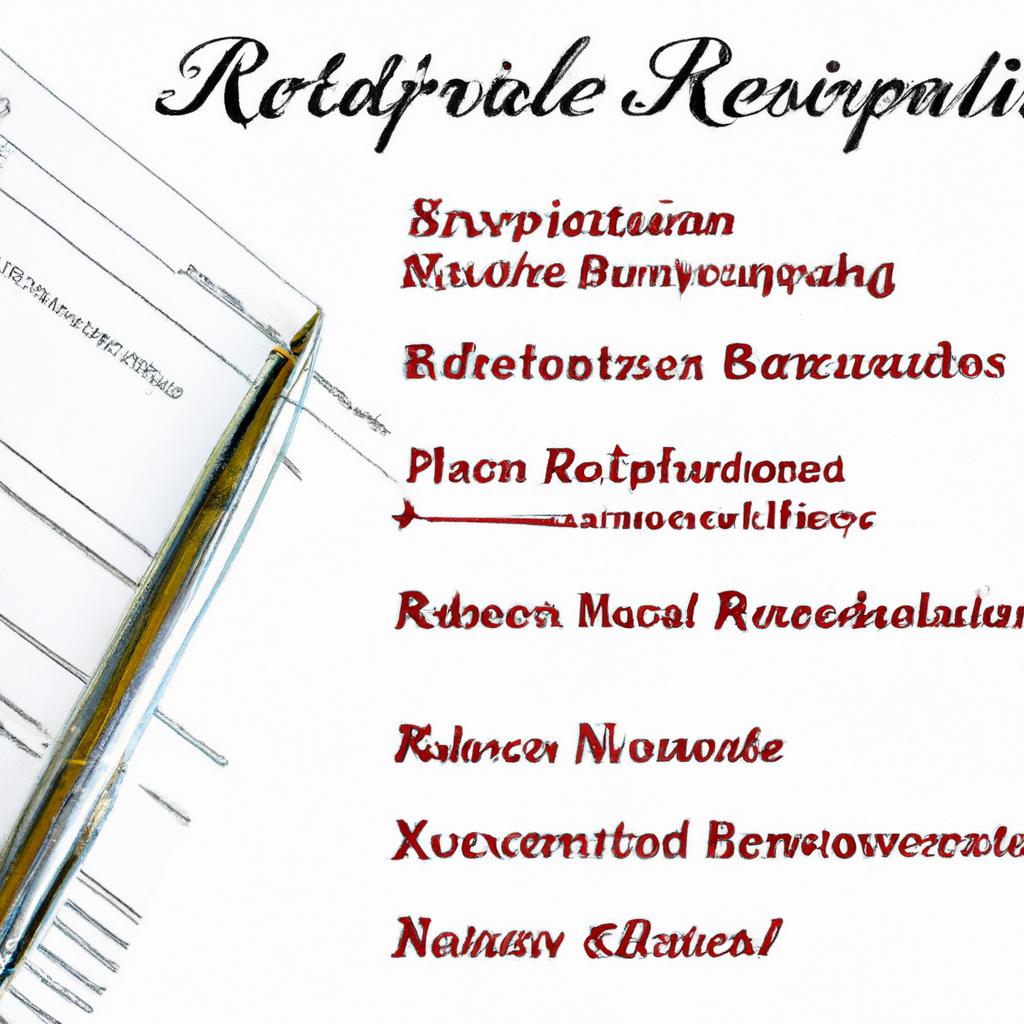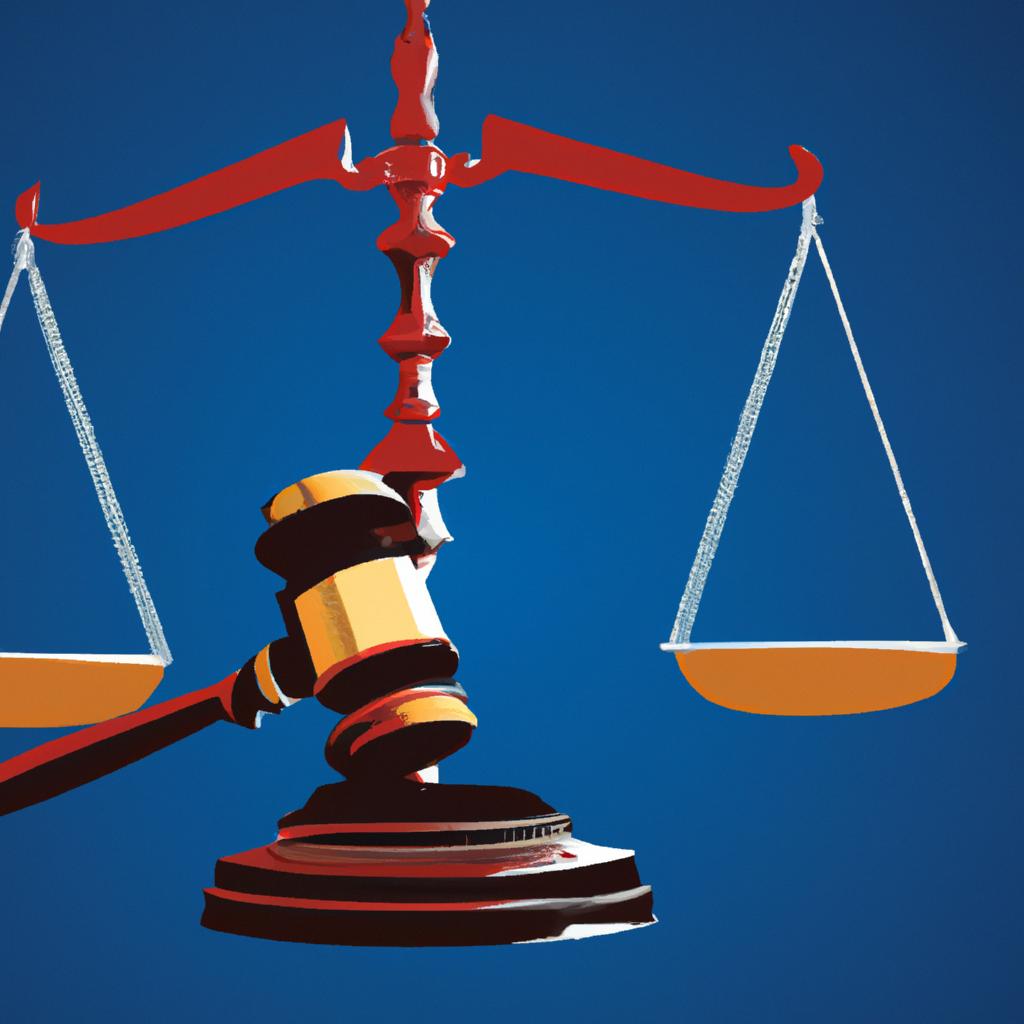As the executor of an estate, navigating the complex legal landscape of probate can be a daunting task. Letters testamentary, often referred to as the “golden ticket” in the world of estate administration, are a crucial document that grants you the authority to act on behalf of the deceased’s estate. At Morgan Legal Group in New York City, we specialize in guiding our clients through the intricate process of obtaining and utilizing letters testamentary to ensure a smooth and efficient distribution of assets. Join us as we delve into the intricate world of letters testamentary and uncover the pivotal role they play in the realm of estate planning and administration.
Understanding the Purpose of Letters Testamentary
When dealing with estate planning and probate matters, one important document that often comes into play is letters testamentary. These legal documents are issued by the court and grant the executor of a will the legal authority to manage the deceased’s estate. Understanding the purpose and significance of letters testamentary is crucial for anyone involved in the probate process.
Letters testamentary serve as proof that the executor has the legal right to act on behalf of the deceased’s estate. With these letters in hand, the executor can access the deceased’s assets, pay off debts, and distribute the remaining assets according to the terms of the will. This legal document helps streamline the probate process and ensures that the deceased’s wishes are carried out properly.

Key Steps in Obtaining Letters Testamentary
When it comes to obtaining letters testamentary, there are several key steps that must be followed in order to ensure a smooth and efficient process. One of the first steps is to file a petition with the probate court in the county where the deceased person resided. This petition must outline the basic information about the deceased, as well as the names and addresses of all interested parties.
After the petition has been filed, a hearing will typically be scheduled where the court will review the petition and determine if all legal requirements have been met. If the court approves the petition, letters testamentary will be issued to the executor or personal representative, granting them the legal authority to administer the estate. It is important to follow all necessary steps and requirements carefully to avoid any delays or complications in the process.

Navigating the Responsibilities of an Executor
Letters testamentary are an essential legal document granted by the court to an executor. This document provides the executor with the authority to act on behalf of the deceased individual’s estate. It is crucial for the executor to understand the responsibilities that come with this document, as they play a significant role in the estate administration process. Below are some key responsibilities that an executor must navigate:
- Asset Inventory: The executor must compile a comprehensive list of all the assets owned by the deceased individual, including bank accounts, investments, real estate, and personal belongings.
- Debt Settlement: It is the executor’s responsibility to identify and pay off any outstanding debts and taxes owed by the estate, using the assets of the deceased individual.
- Distribution of Assets: Once all debts and taxes have been settled, the executor must distribute the remaining assets of the estate according to the terms outlined in the will.
Executing the responsibilities of an executor can be a complex and challenging task. It is crucial for the executor to seek guidance from a qualified estate planning attorney to ensure that all legal requirements are met and the estate administration process runs smoothly.

Recommendations for Executors Handling Letters Testamentary
When handling letters testamentary, it is important for executors to follow certain recommendations to ensure the probate process runs smoothly and efficiently. One key recommendation is to thoroughly review the terms of the deceased’s Will to understand their final wishes and the distribution of their assets. This will help guide the executor in carrying out their duties in accordance with the Will.
Additionally, executors should maintain accurate records of all financial transactions and communications related to the estate. This includes keeping detailed accounts of all assets, debts, and expenses, as well as documenting all correspondence with beneficiaries and creditors. By staying organized and meticulous in their record-keeping, executors can help prevent disputes and potential legal issues during the probate process.
Q&A
Q: What are letters testamentary?
A: Letters testamentary are legal documents issued by a probate court that give an executor the authority to manage and distribute a deceased person’s estate.
Q: Who can request letters testamentary?
A: Typically, the executor named in the deceased person’s will can request letters testamentary. If no executor is named, the court will appoint one.
Q: What powers do letters testamentary grant to the executor?
A: Letters testamentary grant the executor the authority to collect and manage the deceased person’s assets, pay debts and taxes, and distribute the remaining property to beneficiaries.
Q: How long does it take to obtain letters testamentary?
A: The time it takes to obtain letters testamentary can vary depending on the complexity of the estate and any potential challenges to the will. In general, the process can take several weeks to several months.
Q: Can letters testamentary be contested?
A: Yes, letters testamentary can be contested by interested parties who believe the executor is not acting in the best interests of the estate or is otherwise unfit to serve in that role.
Q: Can letters testamentary be revoked?
A: In certain circumstances, letters testamentary can be revoked if the executor is found to have acted unlawfully or in bad faith. This typically requires a court hearing and a formal process.
The Way Forward
In conclusion, letters testamentary play a crucial role in the administration of an estate, allowing the executor to carry out their duties in accordance with the wishes of the deceased. By obtaining these legal documents, the executor gains the authority needed to manage assets, settle debts, and distribute property to beneficiaries. With proper guidance and understanding of the process, the executor can navigate the complexities of probate and ensure a smooth and efficient settlement of the estate. So, whether you are in the process of creating a will or appointed as an executor, understanding the significance of letters testamentary is essential in the estate planning process.

